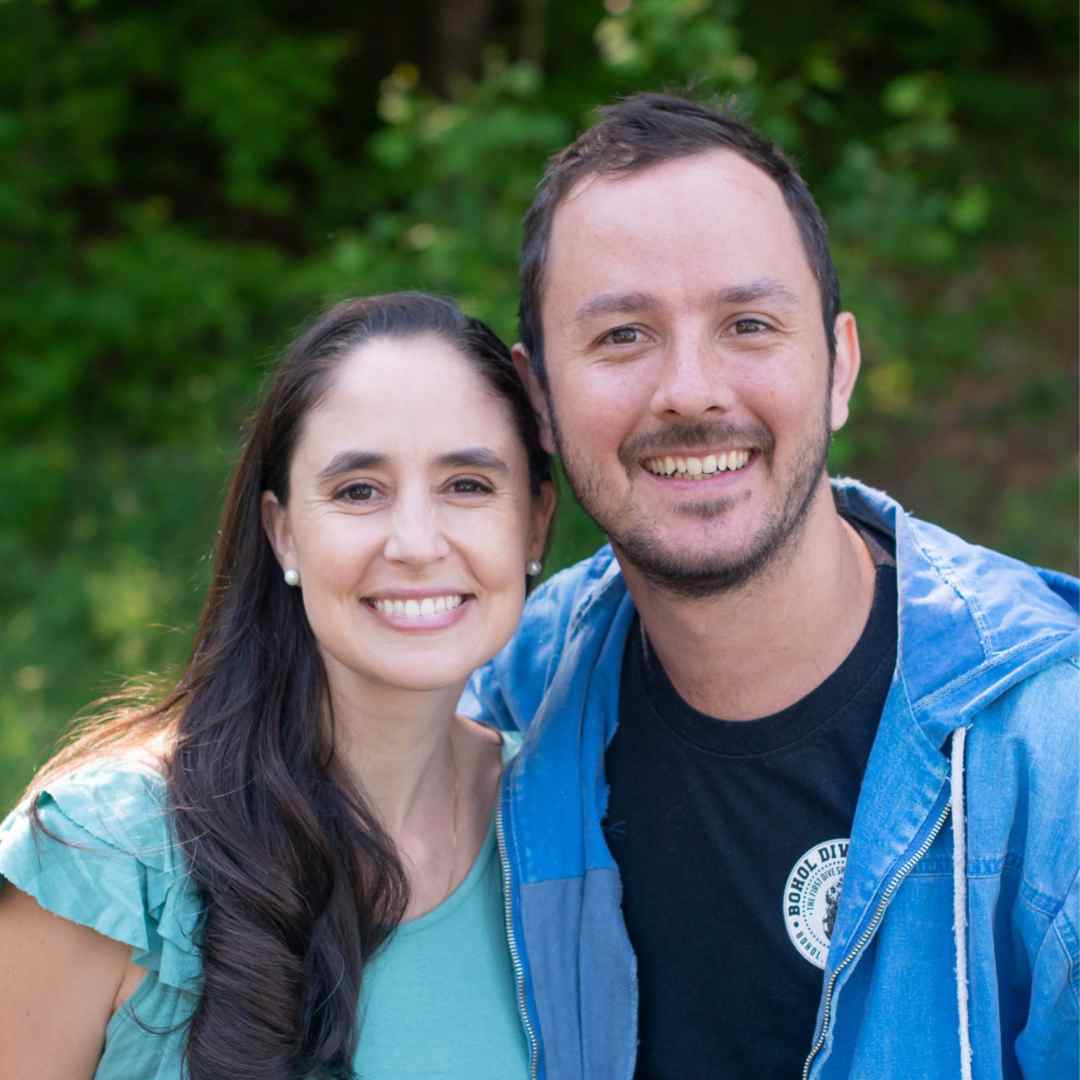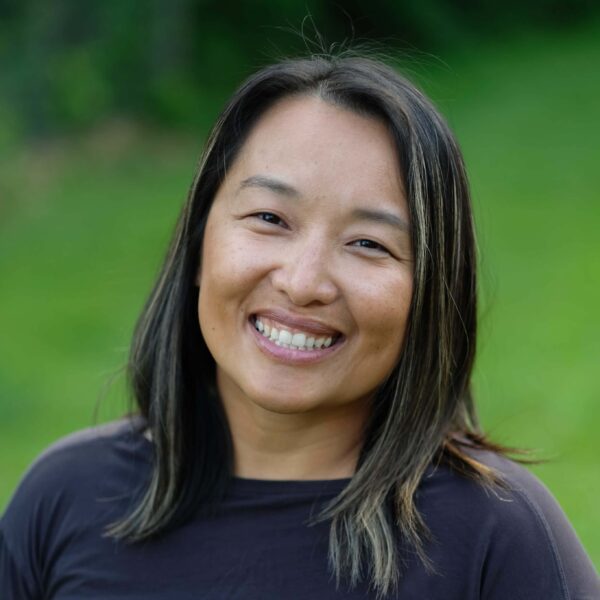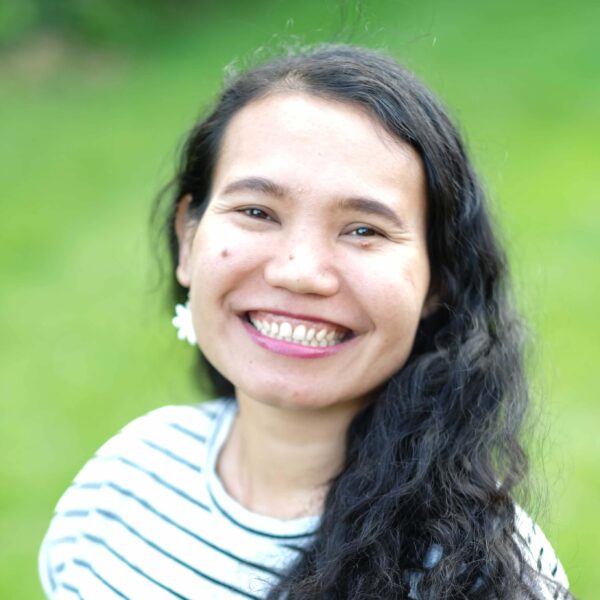Thailand
Teaching & Service in the Thai Highlands
Travel to the mountainous northern provinces of Chiang Mai and Chiang Rai in Thailand, home to lush forests, endless mountain ranges, and tremendous ethnic and cultural diversity. Foster connections with local youth as you teach conversational English lessons and contribute to ongoing construction projects at elementary schools in Chiang Mai’s Mae Ai District, and assist with other service projects in the community as needed. Experience northern Thailand’s distinct highland cultures and traditions while staying in a small community on the Kok River near the border with Myanmar, home to the Thai, Shan, Ahka, Karen, Lahu, and many other ethnic groups. Learn about Buddhism through offering morning alms to monks and visiting temples, make delicious dishes in a Thai cooking class, participate in a day exchange program with local high school students, and cap your program by exploring the dynamic cities of Chiang Rai and Chiang Mai, northern Thai cultural hubs.
- Highlights
• Bike amidst ruins of the ancient Lanna Kingdom
• Learn how to make delicious Thai dishes such as pad thai and khao soi
• Visit Chiang Rai’s Wat Rong Khun and other magnificent Buddhist temples
Itinerary
This itinerary represents our best projection of the group’s schedule. However, we may implement changes designed to improve the quality of the program.
Meet your fellow high school student travelers and one or more of your program leaders in Los Angeles, and fly together to Chiang Mai, Thailand. To learn more about how we organize travel, click here.
Begin your program in Chiang Mai, where you will stay in a quiet neighborhood surrounded by ancient Lanna structures and picturesque temples while becoming acquainted with your surroundings and getting to know your peers. Enjoy panoramic views of the city from Chiang Mai’s beloved mountain, Doi Suthep, and visit evening markets and walking streets to sample delicious street food and try out your Thai language skills with local vendors.
Travel north into the mountains to a local community nestled near the border with Myanmar. With guidance from your leaders and local facilitators, prepare English learning games and basic conversation lessons to teach local elementary school students in small groups. Get your hands dirty by helping with ongoing construction projects at the schools such as laying the foundation for a new canteen or making bricks for future projects. In the afternoons, trek through the lush landscape with your group, visit a local handicrafts market, go for a dip in the swimming pool, or participate in activities such as archery, volleyball, or team-building games. Share your experiences through photographs, writing, or video, and develop a narrative about your time in the community.
Travel to Chiang Rai via riverboat to explore this diverse, charming city in Thailand’s northernmost province known for its rugged natural beauty and remote highland communities. Learn how to make your own eco prints alongside a local artist, hike to a beautiful waterfall in the jungle, and participate in an enriching cultural exchange day program with local students at a high school in the city center. Visit the exquisite Wat Rong Khun, or White Temple, and explore Chiang Rai’s bustling Night Bazaar and evening market streets.
Wrap up your time with a final evening in Chiang Mai presenting your independent projects and reflecting on your adventures as a group.
Fly from Chiang Mai to Los Angeles with your group and a leader, then continue on to your final destination. To learn more about how we organize travel, click here.
Itinerary
This itinerary represents our best projection of the group’s schedule. However, we may implement changes designed to improve the quality of the program.
Meet your fellow high school student travelers and one or more of your program leaders in Los Angeles, and fly together to Chiang Mai, Thailand. To learn more about how we organize travel, click here.
Begin your program in Chiang Mai, where you will stay in a quiet neighborhood surrounded by ancient Lanna structures and picturesque temples while becoming acquainted with your surroundings and getting to know your peers. Enjoy panoramic views of the city from Chiang Mai’s beloved mountain, Doi Suthep, and visit evening markets and walking streets to sample delicious street food and try out your Thai language skills with local vendors.
Travel north into the mountains to a local community nestled near the border with Myanmar. With guidance from your leaders and local facilitators, prepare English learning games and basic conversation lessons to teach local elementary school students in small groups. Get your hands dirty by helping with ongoing construction projects at the schools such as laying the foundation for a new canteen or making bricks for future projects. In the afternoons, trek through the lush landscape with your group, visit a local handicrafts market, go for a dip in the swimming pool, or participate in activities such as archery, volleyball, or team-building games. Share your experiences through photographs, writing, or video, and develop a narrative about your time in the community.
Travel to Chiang Rai via riverboat to explore this diverse, charming city in Thailand’s northernmost province known for its rugged natural beauty and remote highland communities. Learn how to make your own eco prints alongside a local artist, hike to a beautiful waterfall in the jungle, and participate in an enriching cultural exchange day program with local students at a high school in the city center. Visit the exquisite Wat Rong Khun, or White Temple, and explore Chiang Rai’s bustling Night Bazaar and evening market streets.
Wrap up your time with a final evening in Chiang Mai presenting your independent projects and reflecting on your adventures as a group.
Fly from Chiang Mai to Los Angeles with your group and a leader, then continue on to your final destination. To learn more about how we organize travel, click here.
Leaders
Meet some of our featured leaders. Please note that these may not be your leaders for the program.
Leaders
Meet some of our featured leaders. Please note that these may not be your leaders for the program.
Thailand is located in the center of Southeast Asia and is known for its lush landscape, beaches, and opulent temples and palaces. The country is a constitutional monarchy with both a Prime Minister and King, and the main religion is Theravada Buddhism. Thailand, particularly the north of the country, is made up of many diverse communities who contribute their own languages, dress, and customs to the rich tapestry of Thai culture.
Thai is the official language of Thailand, and different dialects and languages are spoken throughout various parts of the country. English is common in the cities, though not as widely spoken in rural areas.
June through October is known as Thailand’s rainy season. Although temperatures vary depending on which area of the country you’re in, average temperatures during this season range from 77–89℉(25–32°C) with very high humidity. Rainfall is common but showers typically do not last long, and storms are very rare. This season boasts beautiful, lush greenery and blue skies.
Thailand is known for its flavorful, herb-rich cuisine, which is often served spicy but can be altered to suit other palates. Rice or ‘kao’ is served with most meals, and the main types of Thai dishes include tom (boiled dishes), yam (spicy salads), tam (foods pounded with a mortar and pestle), gaeng (curries), and stir-frys. Staple ingredients usually include fish sauce, garlic, chili, lime, coconut milk, and other fragrant herbs such as lemongrass and galangal.
Thailand is located in the center of Southeast Asia and is known for its lush landscape, beaches, and opulent temples and palaces. The country is a constitutional monarchy with both a Prime Minister and King, and the main religion is Theravada Buddhism. Thailand, particularly the north of the country, is made up of many diverse communities who contribute their own languages, dress, and customs to the rich tapestry of Thai culture.
Thai is the official language of Thailand, and different dialects and languages are spoken throughout various parts of the country. English is common in the cities, though not as widely spoken in rural areas.
June through October is known as Thailand’s rainy season. Although temperatures vary depending on which area of the country you’re in, average temperatures during this season range from 77–89℉(25–32°C) with very high humidity. Rainfall is common but showers typically do not last long, and storms are very rare. This season boasts beautiful, lush greenery and blue skies.
Thailand is known for its flavorful, herb-rich cuisine, which is often served spicy but can be altered to suit other palates. Rice or ‘kao’ is served with most meals, and the main types of Thai dishes include tom (boiled dishes), yam (spicy salads), tam (foods pounded with a mortar and pestle), gaeng (curries), and stir-frys. Staple ingredients usually include fish sauce, garlic, chili, lime, coconut milk, and other fragrant herbs such as lemongrass and galangal.
What to Expect
Review specific program expectations here. For more general information:
During your time in Thailand, you can expect to work on a couple main service projects including teaching English to local schoolchildren, and assisting with construction-based projects at local schools as needed. The focus of this summer program is learning about another culture by forming meaningful relationships with local people and undertaking a shared service experience together. You should come into the summer with an open-mind, eager to participate in new experiences and interested in exploring another culture and way of life. Everyone participates in the groups’ project, and lends a hand in creating a positive and supportive group environment. To learn more about our Service programs click here.
Pursue an independent project and explore an aspect of local culture of particular interest to you—learn how food is an integral part of Thai family life, create a photo album that documents a Thai classroom, or learn a traditional dance or song.
To encourage full engagement and immersion in the Putney travel experience, we limit the use of cell phones and other devices on our High School programs. Students are allowed to use their phones in transit to the program, and keep their devices throughout. During in-country orientation, leaders will lock phones with a code, unlocking them for the second half of the program. During the tech-free portion of the program, students have the opportunity for a weekly call home according to a pre-arranged schedule. For more details, please see our FAQ.
This is a physically active summer travel program. You do not need to be at peak fitness to participate, but it is important that you have a desire to be physically active, and that you are excited about trying all activities. You can expect to ride bicycles, trek in the jungle to waterfalls, temples and stupas, participate in games and sports with local students, and traverse the towns of Chiang Rai and Chiang Mai on foot.
During the program, students stay 2-3 to a room at locally owned guest houses with hot showers, air conditioning, and electricity. In Mae Ai District we stay in simple, dormitory style rooms in a comfortable bunk house with a wealth of common spaces including a lounge room and swimming pool on site.
We eat breakfast together as a group at the guesthouse, which includes traditional Thai breakfast fare like rice congee or khao tom, with some supplemental Western food. We eat Thai style lunches and dinners at our accommodations or at local restaurants.
What to Expect
Review specific program expectations here. For more general information:
During your time in Thailand, you can expect to work on a couple main service projects including teaching English to local schoolchildren, and assisting with construction-based projects at local schools as needed. The focus of this summer program is learning about another culture by forming meaningful relationships with local people and undertaking a shared service experience together. You should come into the summer with an open-mind, eager to participate in new experiences and interested in exploring another culture and way of life. Everyone participates in the groups’ project, and lends a hand in creating a positive and supportive group environment. To learn more about our Service programs click here.
Pursue an independent project and explore an aspect of local culture of particular interest to you—learn how food is an integral part of Thai family life, create a photo album that documents a Thai classroom, or learn a traditional dance or song.
To encourage full engagement and immersion in the Putney travel experience, we limit the use of cell phones and other devices on our High School programs. Students are allowed to use their phones in transit to the program, and keep their devices throughout. During in-country orientation, leaders will lock phones with a code, unlocking them for the second half of the program. During the tech-free portion of the program, students have the opportunity for a weekly call home according to a pre-arranged schedule. For more details, please see our FAQ.
This is a physically active summer travel program. You do not need to be at peak fitness to participate, but it is important that you have a desire to be physically active, and that you are excited about trying all activities. You can expect to ride bicycles, trek in the jungle to waterfalls, temples and stupas, participate in games and sports with local students, and traverse the towns of Chiang Rai and Chiang Mai on foot.
During the program, students stay 2-3 to a room at locally owned guest houses with hot showers, air conditioning, and electricity. In Mae Ai District we stay in simple, dormitory style rooms in a comfortable bunk house with a wealth of common spaces including a lounge room and swimming pool on site.
We eat breakfast together as a group at the guesthouse, which includes traditional Thai breakfast fare like rice congee or khao tom, with some supplemental Western food. We eat Thai style lunches and dinners at our accommodations or at local restaurants.
A Day in the Life: Maekok River Village
- Morning
- Afternoon
- Evening
A Day in the Life:
Maekok River Village
- Morning
- Afternoon
- Evening

Program Directed by
If you have questions or would like to talk further about this program, please get in touch!


















